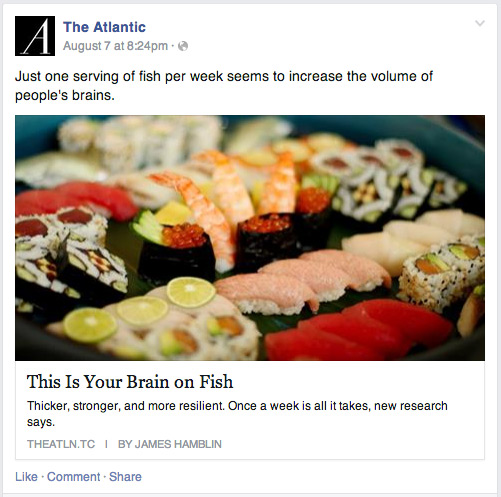Aaron Charlie
27 Aug 2014
Facebook Versus Click-Bait
Is this the end of click-bait? Facebook has announced changes to the News Feed that should reduce the amount of click-bait headlines and improve user experience. What effect does this have on Facebook page owners?

Firstly, here's how Facebook is going to decide which posts are click-bait:
- Short clicks - a user clicks on a link and then quickly clicks back to Facebook. This indicates that the content did not match the headline. In reverse, the longer someone spends on a link, the more useful it will look to Facebook.
- Engagement - links that receive a lot of clicks but very few shares and likes will also be flagged as click-bait as it shows that the link was not valuable enough to earn a recommendation.
This is not a language-based update so brands do not just have to avoid classic click-bait headlines like 'you'll never believe what happened next'; they need to make sure that their content matches the user's expectation and is valuable enough to share.
Click-bait should be a concern for all social networks - if users are tricked into clicking on bad links & poor content too often then they will start to see a fault with the platform itself.
One thing I'm interested to find out is whether or not this affects ads. Plenty of large brand Facebook ads use click-bait tactics; will these be affected by the update or only organic posts?
If the latter then is this just another way for Facebook to make brands pay for visibility? "You can use click-bait as long as you pay."
It's true that Facebook spends a lot of time on trying to improve the News Feed by showing the most relevant content to each user, but often it seems that this hard work is undone by whichever brand pays the most to appear.
This is a disadvantage for new and small businesses who will struggle to build an audience on Facebook without paying for the privilege.
Even paying may not provide a solution as we found out last year in our Facebook Ads survey. 54% of respondents said that Facebook advertising would put them off buying from a business.
The Perfect Facebook Post?
Interestingly the other update announced is that links shared as a link update will perform better than links shared as photo updates.
A lot of brands use photo statuses to promote links because of the large real estate given to a photo post combined with studies that show that photo posts encourage the most sharing.
However, Facebook claims that "people often prefer to click on links that are displayed in the link format". This is likely to be true, but many publishers prefer engagement over clicks in the short term (as this leads to higher visibility in the long term).
Unfortunately for those publishers it looks like the decision has been made; if you want clicks then share a link post.
One thing that I nearly missed in the Facebook announcement is that their example of a good link post does not contain the link in the text. This is a tactic that a lot of social media blogs claim is the best way to share links and it looks like Facebook have just shown their hand and confirmed this tactic.
Here is the post that Facebook shared; I would recommend using it as a 'best practice' template for the type of content that Facebook wants to appear in the News Feed.

Here's what I take from Facebook's example:
- Use a high quality, landscape image
- Share the link but do not include the link in the text
- Keep the status short, ideally one sentence long
- Be descriptive and clear about the link
- Make sure your link is marked up so that the title and description appear properly in the link share
The example above certainly isn't the most clickworthy description I've ever seen, which maybe hints at just how strict Facebook are planning to be around click-bait headlines.
Do you use click-bait headlines on Facebook? Are you going to change your tactics based on this latest update? Let us know in the comments.
For a different way to increase your reach on Facebook try optimising your page for Graph Search.
